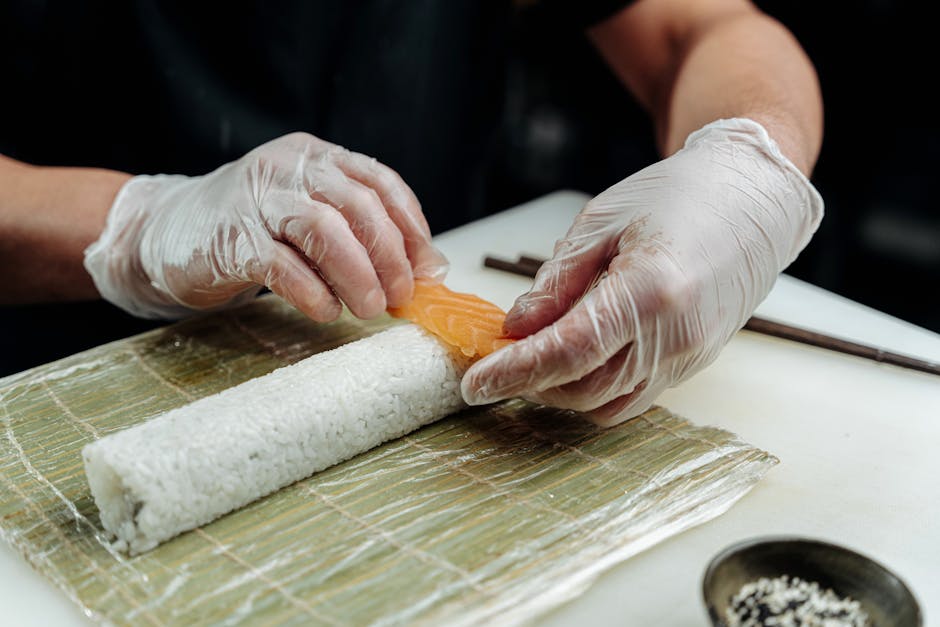Recruiting Multi-Cuisine Chefs for Oman
The Growing Demand for Multi-Cuisine Chefs in Oman
Oman’s tourism and hospitality sector is flourishing. According to the National Centre for Statistics & Information, the Sultanate welcomed over 2.5 million visitors recently. This influx creates substantial demand for diverse culinary experiences. Furthermore, local consumers increasingly seek international flavors alongside traditional Omani cuisine.
Restaurants now require chefs proficient in multiple cuisines. These culinary experts must master:
- Arabic and Omani traditional dishes
- Indian subcontinent specialties
- Continental European techniques
- Asian fusion creations
- Modern gastronomic innovations
This diversity makes recruiting multi-cuisine chefs for Oman restaurants particularly challenging yet rewarding.
Key Challenges in Recruiting Chefs for Oman
Several factors complicate the recruitment process. First, competition is intense among luxury hotels and fine dining establishments. Additionally, cultural adaptation presents significant hurdles for international hires. Moreover, Oman’s specific visa and labor regulations require careful navigation.
Common challenges include:
- Lengthy visa processing times
- High salary expectations for experienced chefs
- Cultural and language barriers
- Adapting recipes to local tastes and ingredients
- Retaining talent amid fierce competition
Understanding these obstacles is crucial for successful recruitment.
Essential Qualifications for Multi-Cuisine Chefs
When recruiting multi-cuisine chefs for Oman restaurants, specific qualifications are non-negotiable. Culinary degrees from recognized institutions are fundamental. Additionally, certifications from prestigious culinary academies enhance credibility. However, practical experience often outweighs pure academic achievement.
Critical qualifications include:
- Formal culinary arts education
- Specialized training in multiple cuisines
- Food safety and hygiene certifications
- Proven experience in high-volume kitchens
- Menu development and cost control expertise
These credentials ensure chefs meet Oman’s high hospitality standards.
Oman’s Visa and Labor Regulations for Chef Recruitment
Navigating Oman’s legal framework is essential for successful hiring. The Ministry of Labour sets specific requirements for expatriate workers. Furthermore, employers must comply with Omanization policies promoting local employment. According to official guidelines, certain documentation is mandatory.
Key requirements include:
- Valid employment contract attested by authorities
- Educational and experience certificates verification
- Medical fitness certificates from approved centers
- Security clearance from home country
- Proof of accommodation meeting standards
Proper documentation prevents legal complications during recruitment.
Effective Sourcing Strategies for Culinary Talent
Finding skilled chefs requires multifaceted approaches. Traditional methods like newspaper advertisements yield limited results. Instead, leverage digital platforms and professional networks. Additionally, partnerships with culinary schools provide access to emerging talent.
Effective strategies include:
- Professional networking sites like LinkedIn
- Specialized culinary job portals
- International recruitment agencies
- Culinary school partnerships and internships
- Industry referrals and employee recommendations
These methods expand your talent pool significantly. For specialized assistance, consider our HR Resources designed for hospitality recruitment.
Competitive Compensation Packages for Oman Chefs
Attracting top culinary talent demands competitive remuneration. Salaries vary based on expertise and establishment type. Executive chefs command significantly higher packages than sous chefs. Additionally, benefits often include accommodation, transportation, and annual flights.
Typical compensation elements:
- Tax-free monthly salary
- Free accommodation or housing allowance
- Transportation or company vehicle
- Annual return air tickets to home country
- Health insurance and end-of-service benefits
Comprehensive packages make positions more attractive to candidates.
Cultural Adaptation and Integration Support
Successful chef recruitment extends beyond hiring. Integration support ensures long-term retention. Oman’s culture differs significantly from Western and Eastern traditions. Therefore, cultural orientation programs are invaluable. These programs help chefs adapt to local customs and workplace norms.
Essential support measures include:
- Pre-arrival cultural briefing sessions
- Language basics training for Arabic communication
- Introduction to local ingredients and suppliers
- Community integration activities
- Ongoing support for personal and professional adjustment
Proper support reduces turnover and enhances job satisfaction.
Retention Strategies for Culinary Staff in Oman
Retaining skilled chefs is as crucial as hiring them. High turnover disrupts kitchen operations and affects consistency. Therefore, implementing effective retention strategies is paramount. Career development opportunities significantly impact job satisfaction. Additionally, recognition programs boost morale and loyalty.
Effective retention approaches include:
- Clear career progression pathways
- Regular training and skill enhancement programs
- Performance-based incentives and bonuses
- Positive work environment and work-life balance
- Participation in culinary competitions and events
These strategies create loyal, motivated culinary teams. For personalized retention plans, Contact Us for expert consultation.
Future Trends in Oman’s Culinary Recruitment
Oman’s culinary landscape continues evolving rapidly. Sustainability practices are gaining prominence among diners. Consequently, chefs with eco-friendly kitchen experience are increasingly valuable. Moreover, plant-based cuisine expertise is becoming desirable. The Ministry of Tourism emphasizes authentic yet innovative dining experiences.
Emerging trends include:
- Hyper-local ingredient sourcing
- Farm-to-table concept implementation
- Health-conscious and dietary-specific menus
- Technology integration in kitchen management
- Focus on Omani cuisine modernisation
Staying ahead of trends ensures competitive advantage in recruitment.
Frequently Asked Questions
What are the main requirements for recruiting multi-cuisine chefs in Oman?
Key requirements include valid qualifications, relevant experience, medical fitness, security clearance, and compliance with Oman’s labor regulations and Omanization policies.
How long does the visa process take for foreign chefs in Oman?
Typically, the visa process takes 4-8 weeks, depending on document verification, medical checks, and security clearance procedures.
What salary range should I offer when recruiting chefs for Oman restaurants?
Salaries vary by position: Executive chefs earn OMR 1,200-2,500 monthly, sous chefs OMR 800-1,500, and specialty chefs OMR 600-1,200, plus benefits packages.
Are there specific cuisines particularly sought-after in Oman?
Yes, Arabic, Indian, Italian, Asian fusion, and modern international cuisines are highly demanded, alongside expertise in traditional Omani culinary traditions.
What makes recruiting multi-cuisine chefs for Oman different from other countries?
Oman’s unique blend of traditional values and modern tourism, specific labor regulations, cultural adaptation needs, and high competition for talent create distinct recruitment challenges.
Conclusion: Mastering Chef Recruitment in Oman
In conclusion, recruiting multi-cuisine chefs for Oman restaurants requires strategic planning and execution. Understanding market dynamics, legal requirements, and cultural nuances is fundamental. Furthermore, offering competitive packages and retention programs ensures long-term success. Ultimately, your culinary team defines your restaurant’s identity and customer experience. Therefore, invest time and resources in finding the right talent. To summarize, embrace comprehensive recruitment strategies for sustainable growth. Ready to transform your restaurant’s culinary leadership? Book an Appointment with our hospitality recruitment specialists today.




